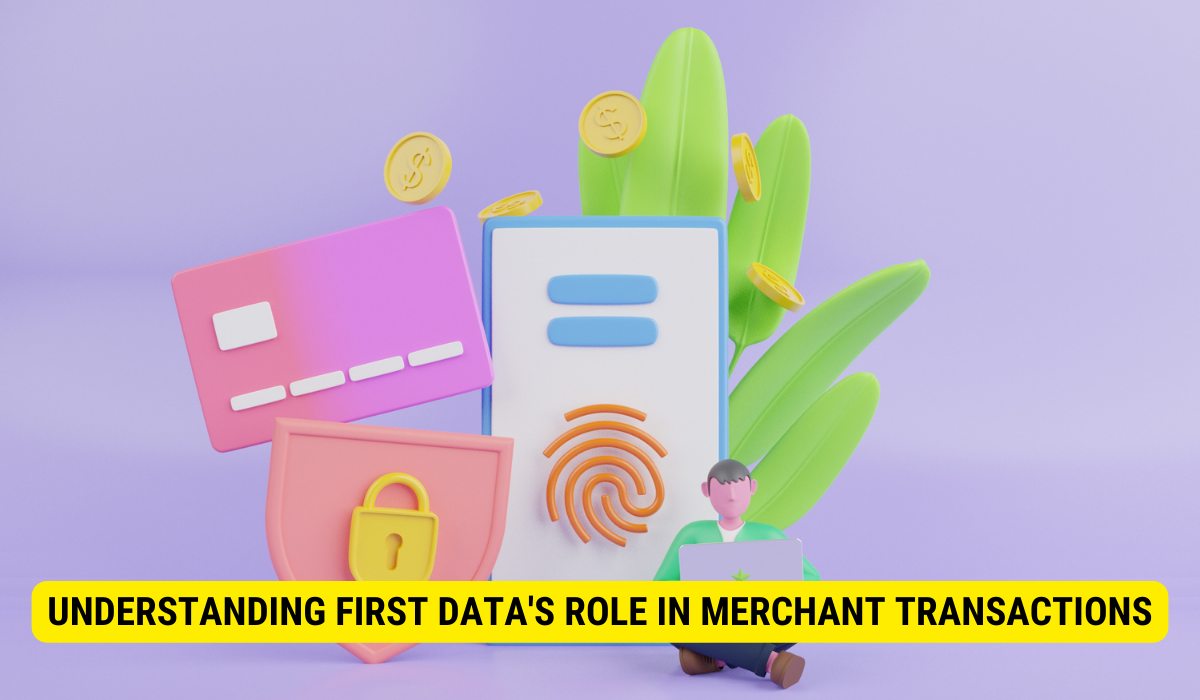Yes, First Data has its own privacy policy tailored specifically for merchants who utilize its payment processing services. This privacy policy is a fundamental component of First Data’s commitment to safeguarding sensitive merchant and customer data.
“Does First Data have a privacy policy for merchants?” is a commonly asked question among those who use First Data’s services to process their transactions. Together, we will explore First Data’s role in merchant transactions, the specifics of its privacy policy, how it compares to other payment processors, and what merchants need to know when navigating through it. We will also discuss the future of privacy policies in merchant transactions and how changes in privacy laws may impact First Data’s policy.
Understanding First Data’s Role in Merchant Transactions

Before diving into First Data’s privacy policy, it’s essential to understand the company’s role in merchant transactions. First Data is a global payment processing company that helps merchants accept electronic payments from their customers. They facilitate transactions by securely transmitting payment data between the merchant, the customer, and the respective financial institutions involved.
First Data’s role in merchant transactions is crucial for the smooth operation of businesses worldwide. Providing a secure and reliable platform for processing electronic payments enables merchants to expand their customer base and increase sales. With their advanced technology and expertise, First Data ensures that transactions are processed efficiently, reducing the risk of errors or delays.
Furthermore, First Data’s global reach allows merchants to accept customer payments worldwide. This opens new business opportunities to tap into international markets and cater to diverse customers. By seamlessly handling different currencies and payment methods, First Data simplifies the complexities of cross-border transactions, making it easier for merchants to expand their global presence.
The Importance of Privacy in Merchant Transactions
Privacy has become a paramount concern for merchants and customers in the modern digital age. When processing transactions, sensitive information such as credit card details and personal data may be exchanged. A robust privacy policy must be in place to protect this information and ensure trust between all parties involved.
Privacy is a legal requirement and a fundamental aspect of ethical business practices. First Data takes the importance of privacy in merchant transactions seriously. They understand that customers trust them with their sensitive information and strive to maintain the highest data protection standards.
By prioritizing privacy, First Data aims to create a secure environment where merchants and customers can confidently engage in electronic transactions. They employ state-of-the-art security measures to safeguard data from unauthorized access, ensuring that sensitive information remains confidential throughout the payment process.
How First Data Handles Merchant Data?
First Data understands the importance of keeping merchant data secure. They have implemented various safeguards and protocols to protect sensitive information. This includes encryption, tokenization, and secure storage practices. Additionally, First Data strictly adheres to industry best practices and complies with relevant privacy and data protection regulations.
Encryption is a key component of First Data’s data security strategy. It involves converting sensitive information into an unreadable format, making it virtually impossible for unauthorized individuals to decipher. By encrypting merchant data during transmission and storage, First Data adds an extra layer of protection, ensuring that the information remains inaccessible even if intercepted.
Tokenization is another security measure employed by First Data. It involves replacing sensitive data, such as credit card numbers, with unique identification symbols called tokens. These tokens are meaningless to anyone who does not possess the corresponding decryption key. By tokenizing merchant data, First Data minimizes the risk of data breaches and unauthorized access.
In addition to encryption and tokenization, First Data follows strict storage practices. They utilize secure servers and databases to store merchant data, ensuring it is protected from physical and digital threats. By regularly monitoring and updating its security infrastructure, First Data stays ahead of emerging threats and maintains a robust defence against potential vulnerabilities.
Furthermore, First Data’s commitment to privacy extends beyond technical measures. They have a dedicated team of professionals who continuously monitor and assess their security practices. This team stays informed about the latest trends in data security and proactively implements measures to mitigate risks.
In conclusion, First Data’s role in merchant transactions is vital for the smooth operation of businesses globally. Providing a secure and reliable payment processing platform enables merchants to expand their reach and cater to a diverse customer base. Privacy is paramount to First Data, and they employ various security measures to protect sensitive merchant data. Through encryption, tokenization, and secure storage practices, First Data ensures that transactions are conducted in a safe and trustworthy environment.
The Specifics of First Data’s Privacy Policy
Now, let’s explore the specifics of First Data’s privacy policy. By reading and acknowledging the policy, merchants can better understand how their data is collected, used, and protected by First Data.
Key Components of the Privacy Policy
First Data’s privacy policy covers essential aspects such as data collection, usage, sharing, and retention. Merchants can expect to find detailed information about how First Data handles their customers’ data, its uses, and the circumstances under which it may be shared with third parties.
How First Data’s Privacy Policy Affects Merchants?
Understanding how First Data’s privacy policy affects its business operations is crucial for merchants. The policy outlines the merchant’s responsibilities in ensuring compliance with privacy regulations and provides guidelines on handling customer data securely. Familiarizing themselves with these responsibilities can help merchants build trust with their customers and avoid potential legal or reputational risks.
Comparing First Data’s Privacy Policy to Other Payment Processors
Now, let’s compare First Data’s privacy policy to other payment processors. Each payment processor has its own unique approach to privacy, and understanding these differences can help merchants make informed decisions.
Unique Aspects of First Data’s Privacy Policy
First Data’s privacy policy stands out in various ways. One unique aspect is their commitment to transparently and promptly communicating policy changes to merchants. This ensures that merchants remain current and aware of any modifications that may impact their data-handling practices.
How Other Payment Processors Handle Merchant Privacy?
Different payment processors have different approaches to merchant privacy. Some may have more stringent data protection measures in place, while others may have more relaxed policies. Merchants should carefully review and compare the privacy policies of various payment processors to choose the one that aligns best with their privacy values and obligations.
Navigating First Data’s Privacy Policy as a Merchant
As a merchant using First Data’s services, understanding the intricacies of their privacy policy is essential. Navigating through the policy may seem overwhelming initially, but there are key points to remember.
What Merchants Need to Know About First Data’s Privacy Policy?
Merchants should focus on sections that outline their responsibilities regarding customer data protection and compliance with privacy laws. These sections provide actionable steps to safeguard customer information and maintain the trust of their clientele.
Ensuring Compliance with First Data’s Privacy Policy
Compliance with First Data’s privacy policy is a legal requirement and a way to protect the merchant’s reputation. Merchants must develop internal processes and procedures to meet the policy’s requirements, such as conducting regular data security audits and employee training programs.
The Future of Privacy Policies in Merchant Transactions

Looking ahead, the future of privacy policies in merchant transactions is evolving. Payment processors, including First Data, will continue adapting their policies to meet the changing privacy landscape.
Trends in Privacy Policies Among Payment Processors
Payment processors are increasingly emphasizing transparency, accountability, and user control when it comes to customer data privacy. This trend reflects the growing demand for companies to be more transparent about their data practices to build consumer trust.
How Changes in Privacy Laws May Impact First Data’s Policy?
Privacy laws continually evolve globally, which may impact First Data’s privacy policy. As regulations become more stringent, payment processors like First Data may need to make adjustments to ensure compliance with these laws and maintain data privacy standards that exceed regulatory requirements.
Key Takeaways
- First Data has its own privacy policy to protect sensitive merchant data and comply with data protection regulations.
- Merchants should review and understand First Data’s privacy policy to ensure compliance and build customer trust.
- Comparing the privacy policies of different payment processors can help merchants make informed decisions about data handling.
- The future of privacy policies in merchant transactions involves increased transparency and adaptability to evolving privacy laws.
FAQs
Does First Data’s privacy policy apply to all merchants?
Yes, First Data’s privacy policy applies to all merchants using their services for payment processing.
What should merchants do if they have concerns about data privacy with First Data?
Merchants should contact First Data’s customer support or their account representative to address any concerns or obtain clarification regarding data privacy.
Can First Data’s privacy policy change over time?
As with any policy, First Data’s privacy policy can change. Merchants should regularly review and stay updated on any modifications to the policy.
Are merchants responsible for compliance with privacy laws, or is First Data solely responsible?
Merchants share the responsibility of compliance with privacy laws. First Data outlines the necessary measures in its privacy policy, which merchants must implement in their operations.
Conclusion
In conclusion, First Data does have its own privacy policy for merchants. Merchants must understand and comply with this policy to protect their customers’ data, meet privacy regulations, and build trust in their business operations. By staying informed about privacy policies in the payment processing industry, merchants can make well-informed decisions to ensure the security and privacy of their customers’ information.
